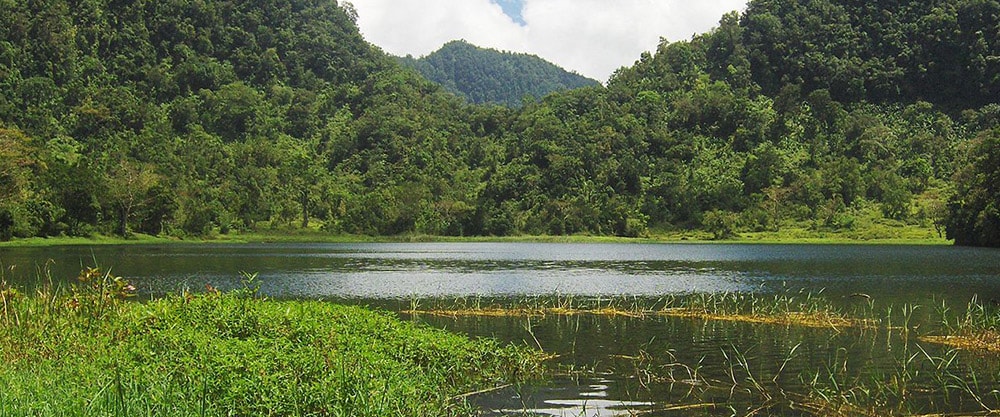The challenges of island development

Doctor Abdou Salami Abdou,
Governor of the Autonomous Island of Ndzuwani - Union of Comoro
Development is a multifaceted phenomenon, which in small insular territories is often analysed from the perspective of economic, social and environmental vulnerability (small populations, limited resources, increased vulnerability to natural disasters and strong dependency on international trade) as well as other drawbacks affecting their growth prospects. Ndzuwani is not an exception to that, as it is a small island (424 Km2, close to 350 000 hts) autonomous within the Union of the Comoros, an Indian Ocean island nation. The challenges we face in terms of development are many, just like the other sister islands of the archipelago, and they are often shared with other similar territories from all over the world. Despite the fact that some island territories are amongst the most prosperous economies in the world, they are specially concerned by climate change, and, in most cases, by economic dependence.
Concerns over climate change
Small island territories face some common challenges. Environmental vulnerability is one of these priorities and is a recurrent subject of international debate. Most of these islands are rich in biodiversity, natural and ocean resources that they can use to turn these challenges into opportunities to create jobs and a shared prosperity for their peoples. In the case of Ndzuwani, its coastal and maritime fauna is characterized by a great biological diversity, which includes elements of worldwide significance like the Comoros Coelacanth (or Latimeria chalumnae, a fish that dates back 65 million years), whales, tortoises and dolphins. The natural forest represents a unique reservoir of highly representative endemic species and ecosystems, as for example the Livingstone bat.
However, all these resources are faced with a serious global threat: climate change. In this context, it is normal to ask ourselves for the development of small islands like Ndzuwani, as this phenomenon so real is making some island nations have great economic losses due to climate disasters. The Island of Ndzuwani, like all other small islands, also suffers the consequences of global warming. High among these is the sea level rise, strongly heightened by sand extraction performed by the population. Every centimeter rise further destroys the beaches and coasts at the expense of road infrastructures built near the coat in the coastal villages. Deforestation by human action and rainfall unbalance are also causing the drying of rivers and soil erosion. All these are evident threats for the island. The increased drying of the water courses are in part due to anthropic pressure on the forested corridor, although climate change has also a lot to do with it.
Small island development in the context of economic dependency
Small islands have different realities, in terms of geography, demography and economy. The enclave (aerial and/or maritime), proximity or remoteness to continental coasts and to the large maritime lines, without forgetting the limits of their internal market, are some of the aspects that define the degree of opportunities that small islands can have. These aspects are usually common among island nations, such as the Island of Ndzuwani. Its particularity lies in its political statues, an autonomous island within the Comorian ensemble. The most common features among islands is isolation. Physical disruption requires adapting the transport means, which make the costs rise. A perfect example are the air services in the Island of Ndzuwani, where the closest international airport is located in another island of the archipelago. The air service is provided by small private-owned transport companies at prohibited prices. Travelling between the island and overseas must be done in two steps (stopover at the country’s international airport), with access difficulties and cost overruns.
Besides the limitations mentioned before, island economies have, in most cases, small domestic markets that don’t allow to satisfy the basic needs of the population. The root cause of this situation is the economic dependency on external suppliers. The capacity to steer economic diversity towards overseas will help minimize economic dependency and promote development.
Therefore, the islands must adopt adaptation measures and circumventions, according to their disposition. Some of them find in their natural endowments (sea, beach and sun) the premise for socio-economic development. With the development and promotion of tourism, the constraints like isolation and/or remoteness of islands can become attractive factors. Touristic specialization has been the right answer for certain small island nations. The needs and challenges in terms of financing for small islands to attain sustainable development often depend on other actors: donors and funds providers, bilateral and multilateral partners, other partners for development. The Island of Ndzuwani, because of its charter, is exposed to a double dependency: on the one hand, the Central Government of the Comoro Union (specially in questions related to energy, communications infrastructures, gas supplies, total workers…)
The development challenges of the Island of Ndzuwani
To face its own development challenges and to help the population take advantage of the Island’s economic potentialities, the Government of Ndzuwani has adopted the appropriate measures, in agreement with the powers granted by the Constitution of the Comoro Union. These measures are included in the strategic document. They are based on: the reduction of regional inequalities, support to municipalization, the development of tourism as a vector for economic growth, professional training, promotion of economic and financial good governance, the development of the road infrastructures and the renewable energy sectors.
For that, the island’s Executive has launched, in parallel with the efforts deployed at an internal level and with the support of the Central Government, an openness and integration policy within the international organizations and the communities that it can join, always in agreement with the country’s constitutional framework. In this regard, the Island has just joined the United Regions Organization (ORU Fogar) and has confirmed its accession to UCLG, the AIRF and signed a cooperation agreement with the Moroccan region of Rabat-Salé-Kénitra region.







































































